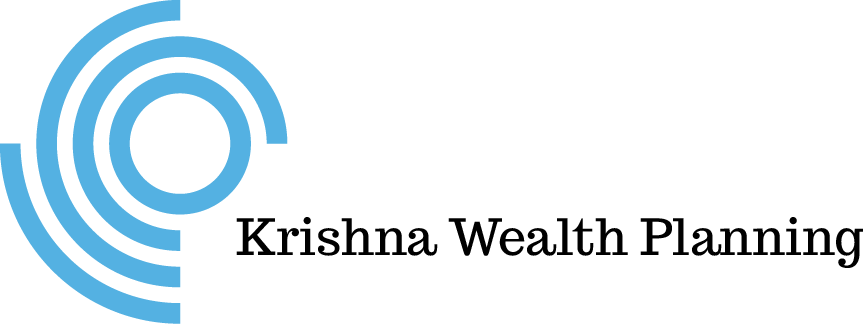5-Minute Read
In the early stages of building a financial plan, we ask new clients to provide estimates of their household’s spending. It’s an important part of the data gathering process, but I don’t expect to get much accurate data. Some clients will surprise me by giving great details. But most simply don’t have the information and may initially have some uneasiness about their level of spending. I sometimes hear an admission like “We really should have a budget.”
Is there a way you can get most of the benefits of budgeting without actually building a full budget? I believe you can by starting with this idea of tracking. We briefly explore the concept in this piece.
Budgets are Fun (Said no one ever)
Budgets must be important, right? After all, businesses and governments of all sizes have budgets. Of course, sticking to a budget is another story! Some businesses fail due to poor fiscal management. Some governments run deficits that have delayed economic impacts. On the other hand, these entities often have mechanisms to raise capital, issue bonds and (at least for governments) print money.
Individuals like you don’t have that same kind of luxury. Sure, you may have access to credit cards, mortgages, and lines of credit. But generally, having a budget can serve you well. Budgets establish constraints. Constraints help you become creative with your spending. Dare I say even frugal. Adhere to a budget and you minimize the risk of going in debt. You also maximize your potential to save and invest. A budget, when followed, makes you more financially robust. Need more reasons?
The trouble is few people want to create a budget or be constrained by one! You may realize you can benefit from a budget, but execution is a challenge. You may not have the time or know how to do it the right way. Technology tools are available that can make it easier if they don’t become another digital distraction among all the apps we have today.
For those of you who have tried to budget, you probably realized at some point that it involves a lot of guesswork and iteration. Oh, and the targets are always moving because of inflation or a desire for a higher lifestyle. After a sincere attempt, you may have given it up and moved onto other things.
Effective budgeting seems to require you doing at least three things well:
- One – Build a system for tracking income and expenses.
- Two – Establish realistic constraints or guardrails to prevent you from overspending.
- Three – Frequently review and make course corrections.
It’s possible some of you are already good at budgeting. If so, that’s fantastic. Don’t stop. You probably found a way to turn the steps above into some type of easy-to-use system or habit. Or you found after experimenting that budgeting was worth the time and effort. In that case, maybe budgets became fun? OK, probably not.
As a financial planning practitioner, I like to advocate you just focus on step number one. Become better at tracking. Progress is possible without doing everything that good budgeting requires.
Tracking to the Rescue?
Why Track?
Long ago, I read the book Your Money or Your Life. The authors Vicki Robin and Joe Dominguez suggested tracking every cent that comes into or out of your life. That may sound extreme, but their perspective was to treat your money as your life energy. You want to be conscious of where your life energy is flowing. Deep stuff.
Tracking is intensely practical though, and it can be a valuable exercise. If you’re going to do it, I agree you should strive to track everything if you can. For expenses, this includes credit card transactions, debits from your checking account, cash payments, taxes paid and everything else that might be deducted from your paystub if you’re employed.
Tracking can be a self-correcting mechanism. In the exercise domain, those who track their steps tend to get more steps in daily. In dieting, those who track their calorie intake tend to consume fewer calories. For financial health, tracking your expenses could have a similar effect.
The longer you track, the better it reveals your financial reality. It captures some of the less frequent, but larger expenses you might not even think to include in a budget. Do this a few years and you really get to understand your lifestyle needs. You also get to see how inflation impacts you.
How to use Tracking Results?
Putting aside the how for a second, let’s assume you do start tracking. You can periodically review results (perhaps every 6 months or once a year). The key is not to judge yourself too much when you see your reality or review it with your financial planner.
Identify what areas of spending are aligned with your values. You may find there are some clear areas where you can reduce spending without sacrificing the quality of your life. As a broad generalization, I often see that material things (stuff) don’t have the lasting satisfaction as spending in areas like experiences, aesthetics, and education. But this is really a personal exercise, and I’m only summarizing the process here. There are no right or wrong answers. You might even see your preferences changing over time.
You may also find areas where you got so much fulfillment that you want to spend more. In turn, you figure out how to earn more. All of this is information to help make your financial plan better reflect your goals.
Addition by Subtraction
If you do find areas where you can cut back (ideally with minimal pain), it’s important that you pay yourself instead. Cutting back expenses should mean increasing savings, but it’s funny how it often doesn’t turn out that way. Sometimes we must gently intervene.
If you can save, this might mean setting up a regular automatic deposit to an investment account. Or if you’re building up cash for a larger investment, maybe you start a regular transfer to your savings account. Whatever you do for savings, be sure to track that too!
What Tool Should you use to Track?
I don’t have a preference on what specific tool you use to track your income and expenses. There is no one right way the output should look. Online tools are available that aggregate account feeds into one place which helps simplify the process. Clients of mine have access to similar features in their financial planning portal.
If you’re willing to do a little extra work and like spreadsheets, try that. The time-consuming part in the early stages of any tracking approach is probably just classifying expenses. You will figure out what categories and subcategories make sense for your household.
If it helps, I personally use Quicken for my household. I’ll even admit I still use the desktop version of it. It may be old-fashioned in today’s world, but it serves the purpose. And no, I don’t use it for budgeting which I assume it still does very well. For years I’ve only used it for tracking!
In the end, tracking is a financial experiment. If you can’t track everything, start by tracking one or two spending areas of concern. See what works or doesn’t work for you. I’d love to hear if you find tracking to be effective or gain other insights from the process.
If you have comments or questions on this piece, please drop me a line at: [email protected]
References
- https://krishnawealth.com/have-goals-but-focus-on-systems/
- https://yourmoneyoryourlife.com/book-summary/
- https://krishnawealth.com/client-access/
- https://www.quicken.com/products
The information on this site is provided “AS IS” and without warranties of any kind either express or implied. To the fullest extent permissible pursuant to applicable laws, Krishna Wealth Planning LLC (referred to as “KWP”) disclaims all warranties, express or implied, including, but not limited to, implied warranties of merchantability, non-infringement, and suitability for a particular purpose.
KWP does not warrant that the information will be free from error. None of the information provided on this website is intended as investment, tax, accounting or legal advice, as an offer or solicitation of an offer to buy or sell, or as an endorsement of any company, security, fund, or other securities or non-securities offering. The information should not be relied upon for purposes of transacting securities or other investments. Your use of the information is at your sole risk. Under no circumstances shall KWP be liable for any direct, indirect, special or consequential damages that result from the use of, or the inability to use, the materials in this site, even if KWP or a KWP authorized representative has been advised of the possibility of such damages.
In no event shall KWP have any liability to you for damages, losses, and causes of action for accessing this site. Information on this website should not be considered a solicitation to buy, an offer to sell, or a recommendation of any security in any jurisdiction where such offer, solicitation, or recommendation would be unlawful or unauthorized.



